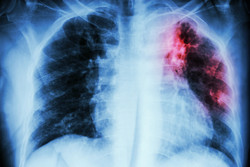Tuberculosis pathogenesis, virulence and persistence
The EU-funded project SYSTEMTB (Systems biology of Mycobacterium tuberculosis) developed a systems biology framework for model-based studies on the causal agent, MTb. Researchers comprehensively studied MTb survival in human macrophages such as THP-1 cells using state-of-the-art techniques such as next-generation sequencing. Their goal was to find the Achilles heel of this pathogen for therapeutic targeting. SYSTEMTB members generated quantitative data sets on MTb describing its transcriptomics, proteomics, metabolomics, structural genomics, lipidomics and glycomics. Using this data, they developed computer models with an emphasis on metabolism, regulatory networks and transcription regulation. These tools enabled researchers to investigate the intracellular operation of mycobacteria and determine MTb survival strategy in the human host. More than 2 000 clones of the fluorescent-tagged MTb library were amplified and supplied to consortium members. Researchers successfully developed a realistic picture of the adaptation of the MTb cell envelope to various stresses. This advanced understanding of the physical interactions, structures, functions and localisations of MTb proteins. SYSTEMTB helped generate a consensus genome-scale constraint-based model of the metabolism and transport of MTb. This model is currently the most comprehensive model of metabolism of MTb with 1 192 reactions, 915 genes and over 83 % of reactions with a gene association. In particular, the dynamic model of MTb's central carbon metabolism provided key insight into MTb resuscitation in latent TB. This should aid in identifying promising drug or vaccine targets as well as biomarkers. Several resources were published as a result of the project. The PeptideAtlas database is to date the most extensive collection of proteomic databases for MTb. The SRMAtlas database contains mass spectrometric assays for the entire proteome of MTb. The PASSEL database contains experimental evidence for every protein identified by the selected reaction monitoring (SRM) assays deposited in the SRMAtlas. The key to the success of the SYSTEMTB project was the integration of bioinformatics, structural and functional studies. Study outcomes have highlighted promising drug treatment strategies for latent TB and the omics technologies developed by SYSTEMTB are already in use in other MTb research projects.







